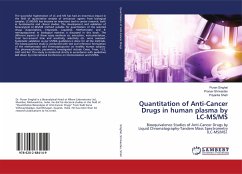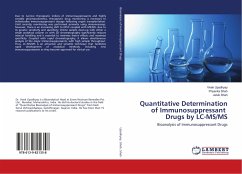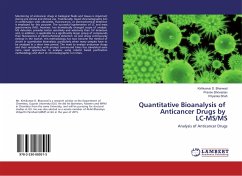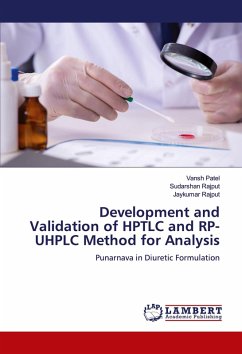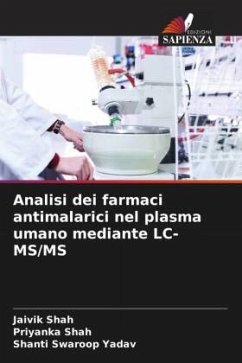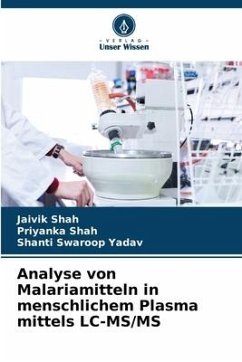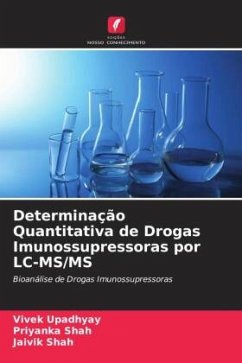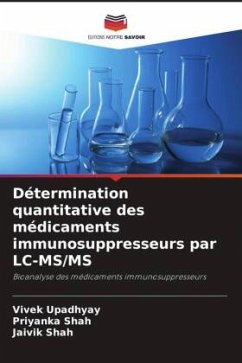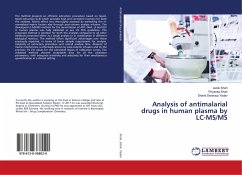
Analysis of antimalarial drugs in human plasma by LC-MS/MS
Versandkostenfrei!
Versandfertig in 6-10 Tagen
33,99 €
inkl. MwSt.

PAYBACK Punkte
17 °P sammeln!
The method presents an efficient extraction procedure based on liquid-liquid extraction (LLE) which provides high and consistent recovery for both the analytes. Matrix effect was thoroughly assessed by estimating the IS-normalized matrix factors also through post-column analyte infusion. The developed LC-MS/MS method for the quantitation of ART, DHA, LF and DLF in human plasma was fully validated as per US FDA guidelines. The proposed method is sensitive for both the analytes compared to all other methods presented either as a single analyte or in combination in different biological matrices. ...
The method presents an efficient extraction procedure based on liquid-liquid extraction (LLE) which provides high and consistent recovery for both the analytes. Matrix effect was thoroughly assessed by estimating the IS-normalized matrix factors also through post-column analyte infusion. The developed LC-MS/MS method for the quantitation of ART, DHA, LF and DLF in human plasma was fully validated as per US FDA guidelines. The proposed method is sensitive for both the analytes compared to all other methods presented either as a single analyte or in combination in different biological matrices. The method offers significant advantages over those previously reported, in terms of lower sample requirement for analysis, simplicity of extraction procedure and overall analysis time. Absence of matrix interference is effectively shown by post-column infusion and by the precision (% CV) values for the calculated slopes of calibration curves. The validated method showed acceptable data for all the validation parameters, with adequate sensitivity and selectivity for their simultaneous quantification in a clinical setting.



